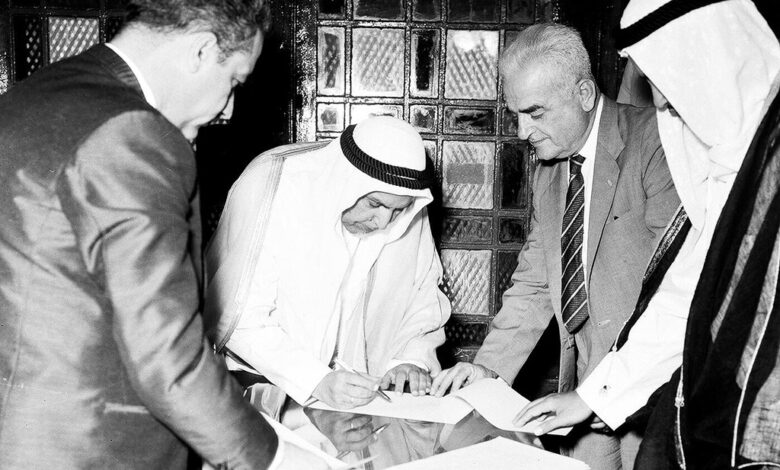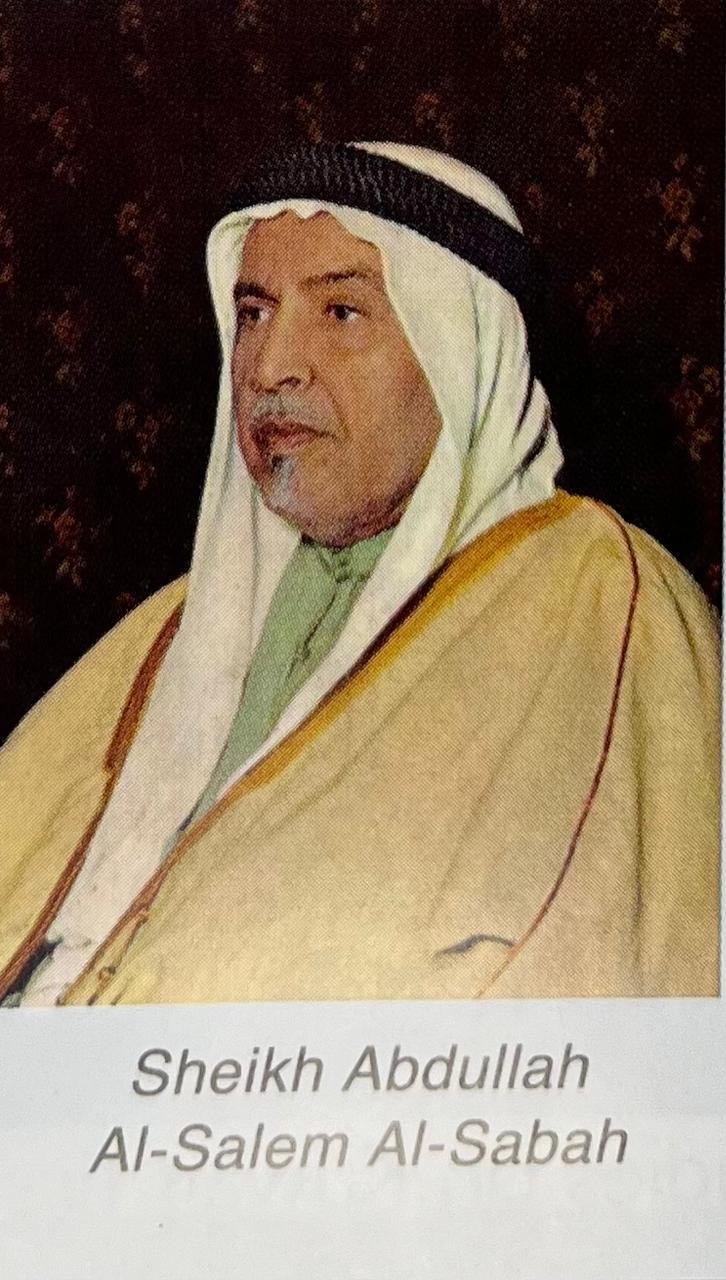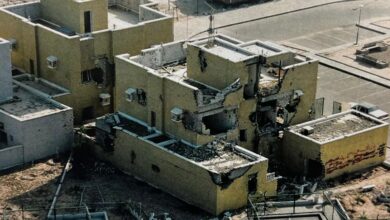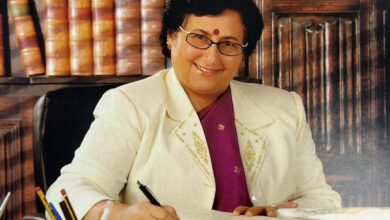Kuwait’s ascension to Independence and a constitutional government

In December 1934, Sheikh Ahmad Al-Jaber Al-Sabah, the ruler of Kuwait at that time, signed an agreement for oil drilling with the Kuwait Oil Company (Anglo-American Company). In 1936-1938, the primary drilling operations proved that Kuwaiti lands were rich in oil, a matter that dramatically increased the importance of the country.

In June 1946 the first shipment of Kuwaiti oil was exported.
In the late forties (1949) a construction movement started new hospital and roads in Kuwait with the building of several public utilities, a During this period economic, intellectual and cultural movement flourished in Kuwait and the number of the literate people and the schools increased. Kuwaiti society also had to face many internal and external challenges as Kuwait evolved from a poor country to a rich one enjoying great financial potentiality. At many different levels, oil production was a turning point for Kuwait.
At the beginning of the fifties, Kuwait witnessed development and reformation in the local administration.
The High Executive Committee was formed in 1954; then the Supreme Council and the Organizational Authority in
1956; in addition to governmental local councils such as the Education Council, City Council and Health Council.
Kuwait was heading for independence. National political awareness was increasing. The activities of Kuwaiti youth increased and they started to criticize the administrative conditions.
At that time, the ruler of Kuwait was Sheikh Abdullah Al-Salem Al-Sabah, who had been the chairman of the first parliament in Kuwait in 1938. He welcomed constructive criticism and was keen to achieve fully considered steps or the way to independence and constitutional government.

In 1959 Kuwait took steps to enact enact laws and establish systems such as the Naturalization Law in 1959, the Kuwaiti Currency Law in 1960, the Passports Law and the organization of Government Departments. These were all steps along the way to full independence which Sheikh Abdullah Al-Salem Al-Sabah had resolved to see to the end.
Sheikh Abdullah Al-Salem Al-Sabah realized that the protectorate agreement was no longer appropriate after the changes that had taken place in the conditions of Kuwait. The Kuwaiti people no longer accepted the restrictions imposed by the protectorate agreement, though they realized very well that this protectorate had many advantages in this period.
Yet, circumstances had changed, which necessitated cancellation of the agreement. Thus, the ruler of Kuwait, Sheikh Abdullah Al-Salem Al-Sabah, expressed his desire to replace the old agreement with a new friendship agreement that went along with the development and changes that had taken place.
The British government accepted the Kuwaiti demand.
Diplomatic notes were exchanged between Sir William Luce, the British Political Resident in the Arabian Gulf at that time, and Sheikh Abdullah Al-Salem Al-Sabah, the ruler of Kuwait, on 19 June, 1961 and Kuwait gained its independence.
A draft constitution was approved on 11 November, ,1961, outlining Kuwait’s system of governance as a fully independent Arab State with a democratic style of government, where sovereignty rests with the nation, which is the source of power”. A few months after independence, the ruler of Kuwait, Sheikh Abdullah Al-Salem, gave instructions for the formation of a popular committee to draft a modern constitution for independent Kuwait.
Two months after the formation of the committee, public dections were held to elect members for the first national aSsembly in the country. Government departments were corganized so as to be able to implement the overall development movement and its plans. Most of the cabinetmembers were chosen from among the elected members of the national assembly which comprised fifty members.
According to the constitution, the national assembly has absolute power to draw the legislative policies and control over the executive authority. Following the Declaration of Independence, the newly-born state of Kuwait applied formally for membership in the United Nations on 6 July 1961. Also on that day, the United Kingdom submitted a draft resolution by which the Security Council would call upon all States to respect the independence and territorial integrity of Kuwait and urge that all concerned work for peace and tranquility in the area. The UN Assembly, at its fourth special session, endorsed the recommendation by acclamation and on 14 May 1963, Kuwait became the Organization’s 111th Member State.
Kuwait also became an important player in the international family of nations, and with its wealth it became a major foreign-aid donor. The Kuwait Fund for Arab Economic Development became active throughout the Arab world and beyond. The country was instrumental in the formation of the Gulf Cooperation Council in 1981, through which the states of the Gulf maintain regional security, stability, and progress.
Sheikh Abdullah’s reign was so central to the evolution of modern Kuwait that when he died in 1965, the country’s National Day was changed to the date of his accession – 25 February, 1950.












